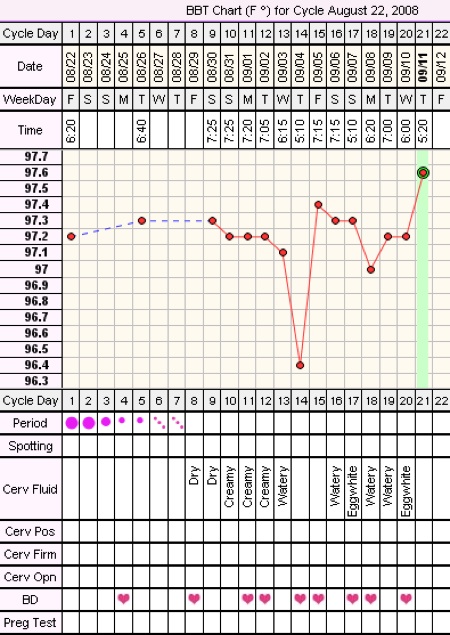Self-Trackers
Kevin Kelly
September 11, 2008
A quick overview of the emerging culture of self-tracking ran in the Washington Post the other day. Called “Bytes of Life: For Every Move, Mood and Bodily Function, There’s a Web Site to Help You Keep Track.” The subtitle is a gross exaggeration, although in time it will be true.
Right now there are a handful of sites that assist individuals in their efforts to monitor their lives. Functions include exercise, moving outside, eating, sleeping, sex, crapping, working, writing, and driving. There seems to be a new site a month, with no end in sight. Every conceivable activity that can be measured and tracked will be measured and tracked.
These sites allow you to easily input your data, then graph it visually, then share it if you want, then discuss it with kindred spirits. One of the sites featured, for example, is My Monthly Cycle, which tracks menstrual cycles, primarily for pregnancy hopefuls. Users add all kinds of data (those little hearts in the chart below are exactly what you think they are). The website charts are dispensed –and of course shared!

The article pokes a little fun at the nerdiness of personal data obsessiveness.
For what possible reason would otherwise sane people dedicate brainpower and man-hours to charting experiences at which they themselves were already present?
And not meaningful things, either. Not things like, “Proposed to future wife at 7:02 p.m., Aug. 15, 2006,” but things like, “Ate three green beans at 7:02 p.m., Aug. 15, 2006.” And not just occasionally, but lots of times every single day, gobs and gobs of binary data representing everything from the last time you slept past 10 a.m. to the song you were listening to at noon last Oct. 12.
Self-tracking is partly about the recording, but also as much about the analysis that goes on after the recording. The apparent meaninglessness of data recorded over time is actually what makes it profound.
Indeed, in science — as well as our lives — it is often the seemingly insignificant bits of data that end up, after inspection, being the most important bits. That’s why its not crazy to collect massive amounts of data from our own lives. Data storage is cheap. Reliable base lines of your life’s habits can be valuable. Why not track everything?


